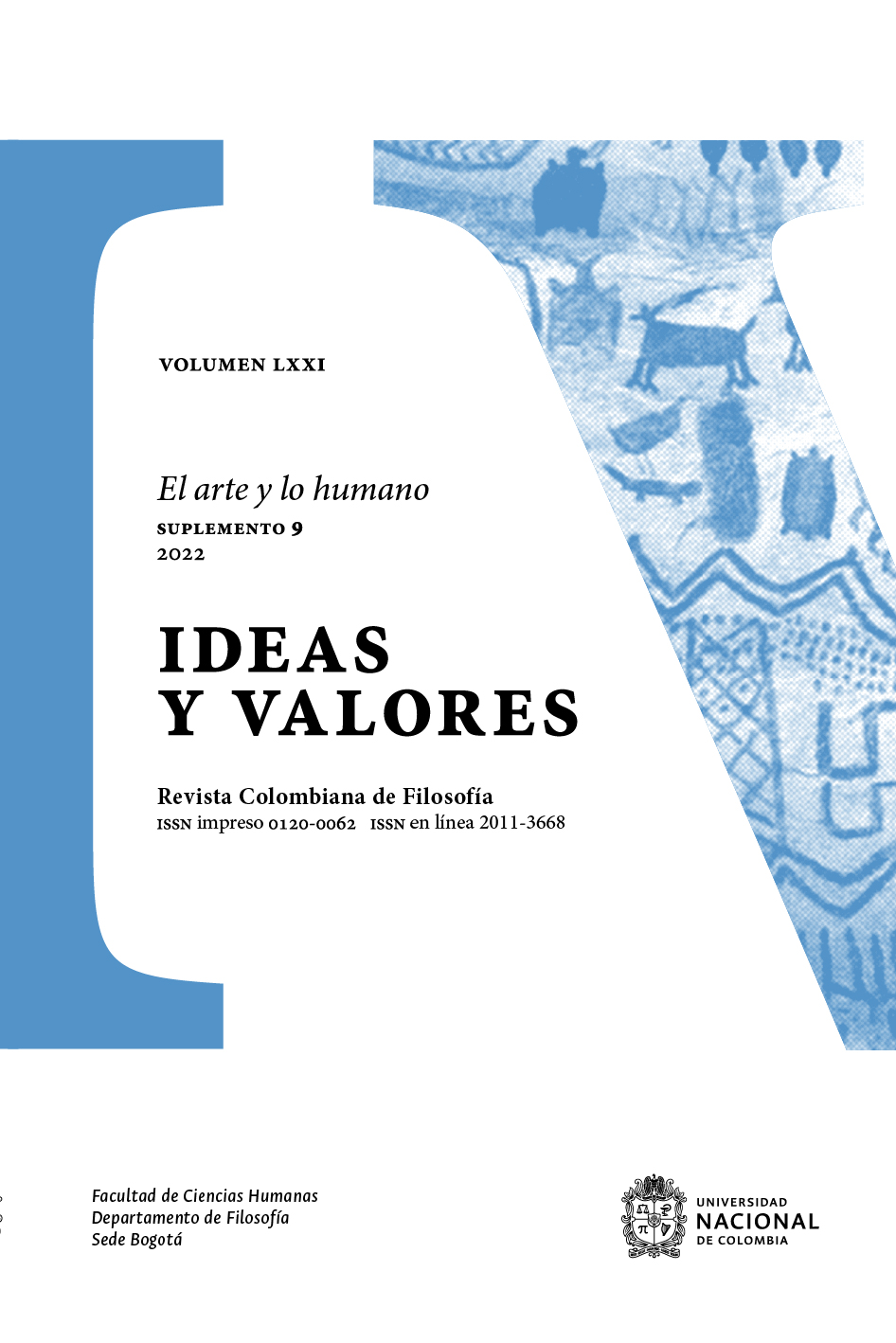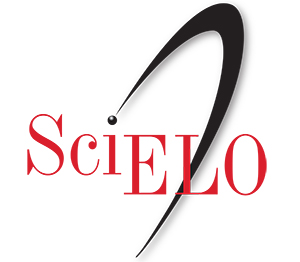Agencias no humanas en el arte. Caminos cruzados de la estética y la antropología
Non-human Agencies in Art: Crossroads between Aesthetics and Anthropology
DOI:
https://doi.org/10.15446/ideasyvalores.v71n9Supl.106751Keywords:
antropología, agencias no humanas, arte, estética (es)Anthropology, non-human agencies, art, aesthetics (en)
Downloads
En el presente artículo planteamos una lectura cruzada de diferentes aspectos de la antropología (Claude Lévi-Strauss, Alfred Gell y Viveiros de Castro) y del discurso estético (Friedrich Schiller y Deleuze/Guattari). La antropología se ha constituido como un nuevo saber que implica cierta ética de descolonización del pensamiento. Esta descolonización supone una puesta en cuestión de los binarismos más arraigados en la filosofía occidental, entre ellos el que solo cabe atribuir agencia a los seres humanos. Nuestro propósito es mostrar que el pensamiento estético ha operado un cuestionamiento semejante, abriendo el camino a pensar agencias no humanas en el arte.
In this paper we propose a cross-referenced reading between some aspects of anthropology (Claude Lévi Strauss, Alfred Gell, and Viveiros de Castro) and aesthetic discourse (Friedrich Schiller and Deleuze/Guattari, mainly). Anthropology has been constituted as a new kind of knowledge that implies peculiar ethics based in decolonization of thinking. This process of decolonization supposes itself the deconstruction of the most deeply rooted binarism in Western philosophy, i.e. that one that restraints the attribution of agency only to human beings. Our purpose is to show that modern aesthetic thought has operated similar critics, clearing a path towards the possibility of thinking non-human agencies in art.
References
Bennet, Jane. Materia vibrante. Una ecología política de las cosas. Traducido por Maximiliano Gonnet. Caja Negra, 2022.
Carmona Hurtado, Jordi. “Todo ser natural es un ciudadano libre. Kant, Schiller, y las raíces estéticas de la ecología.” El arte como praxis social. Editado por José Francisco Zúñiga, Carmen Rodríguez y Jordi Carmona Hurtado. Comares, en prensa.
Deleuze, Gilles and Guattari, Félix. El Anti-Edipo. Traducido por Francisco Monge. Paidós, 1972.
Deleuze, Gilles and Guattari, Félix. Mil mesetas. Traducido por Francisco Monge. Pre Textos, 1980.
Deleuze, Gilles and Guattari, Félix. ¿Qué es la filosofía? Traducido por Thomas Kauf. Anagrama, 1993.
Foucault, Michel. “Introduction to a non-fascist life.” Anti-Oedipus: Capitalism and Schizophrenia. Edited by Gilles Deleuze and Félix Guattari. Viking Press, 1977.
Franco, Afonso Arinos de Melo. O índio brasileiro e a Revolução francesa: as origens brasileiras da teoria da bondade natural. Martin Fontes, 2000.
Gell, Alfred. Arte y agencia. Una teoría antropológica. Traducido por Ramsés Cabrera. sb, 2016.
Lévi-Strauss, Claude. La Pensée sauvage. Plon, 1962.
Lévi-Strauss, Claude. El totemismo en la actualidad. Traducido por Francisco González Aramburo. Fondo de Cultura Económica, 1965.
Jacotet, Philippe. Rilke. Seuil, 2006.
Mbembé, Achille. Crítica de la razón negra. Ensayo sobre el racismo contemporáneo. Traducido por Enrique Schmukler. ned, 2016.
Mauss, Marcel. Ensayo sobre el don. Forma y función del intercambio en las sociedades arcaicas. Traducido por Julia Bossi. Katz conocimiento, 2009. DOI: https://doi.org/10.2307/j.ctvm7bd0m
Rancière, Jacques. Aisthesis. Escenas del régimen estético del arte. Traducido por Horacio
Pons. Manantial, 2013.
Schiller, Friedrich. Kallias. Cartas sobre la educación estética del hombre. Anthropos, 1990. Viveiros de Castro, Eduardo. Metafísicas canibais. Elementos para uma antropología pósestrutural. Cosac Naify, 2015.
How to Cite
MODERN-LANGUAGE-ASSOCIATION
ACM
ACS
APA
ABNT
Chicago
Harvard
IEEE
Turabian
Vancouver
Download Citation
License
Copyright (c) 2023 Los derechos son del autor(es), quien(es) puede re-publicar en parte o en su totalidad el documento ya publicado en la revista siempre y cuando se dé el debido reconocimiento a Ideas y Valores

This work is licensed under a Creative Commons Attribution-NonCommercial-NoDerivatives 4.0 International License.
The Creative Commons Attribution-NonComnercial-No Derivatives 4.0 Internacional License authorizes copying and redistributing the material in any means or format, provided that credit is granted to the authors and to Ideas y Valores as the source of the original publication. Copying or distributing the contents of the journal for commercial purposes is not allowed; neither is the adaptation, derivation, or transformation of the contents, without previous authorization by the authors and the editors of Ideas y Valores. For further information regarding the terms of this license, please consult http://creativecommons.org/licenses/by-nc-nd/4.0/legalcode.







1.jpg)
.png)


1.png)
.png)
.png)
.jpg)

.png)









